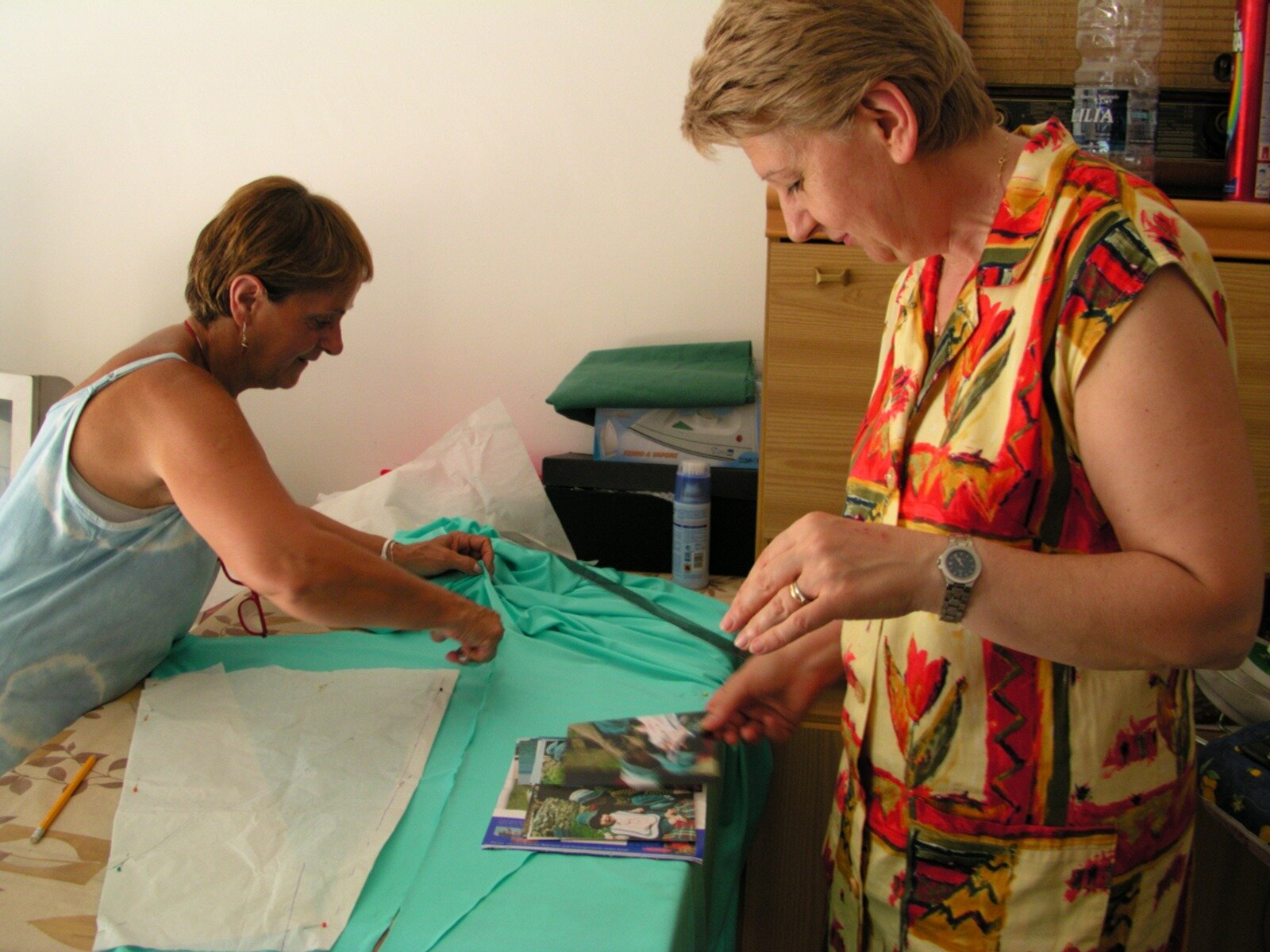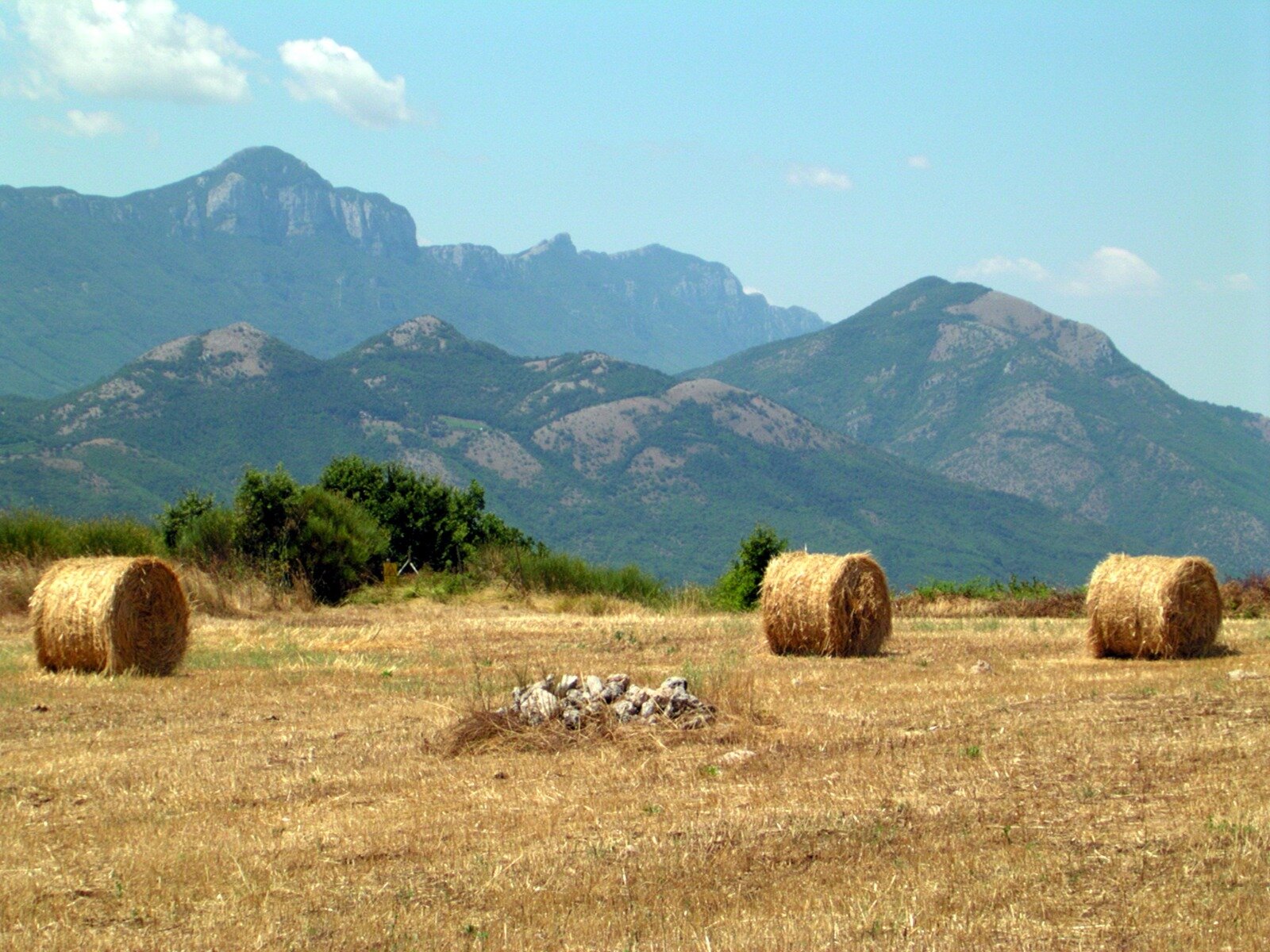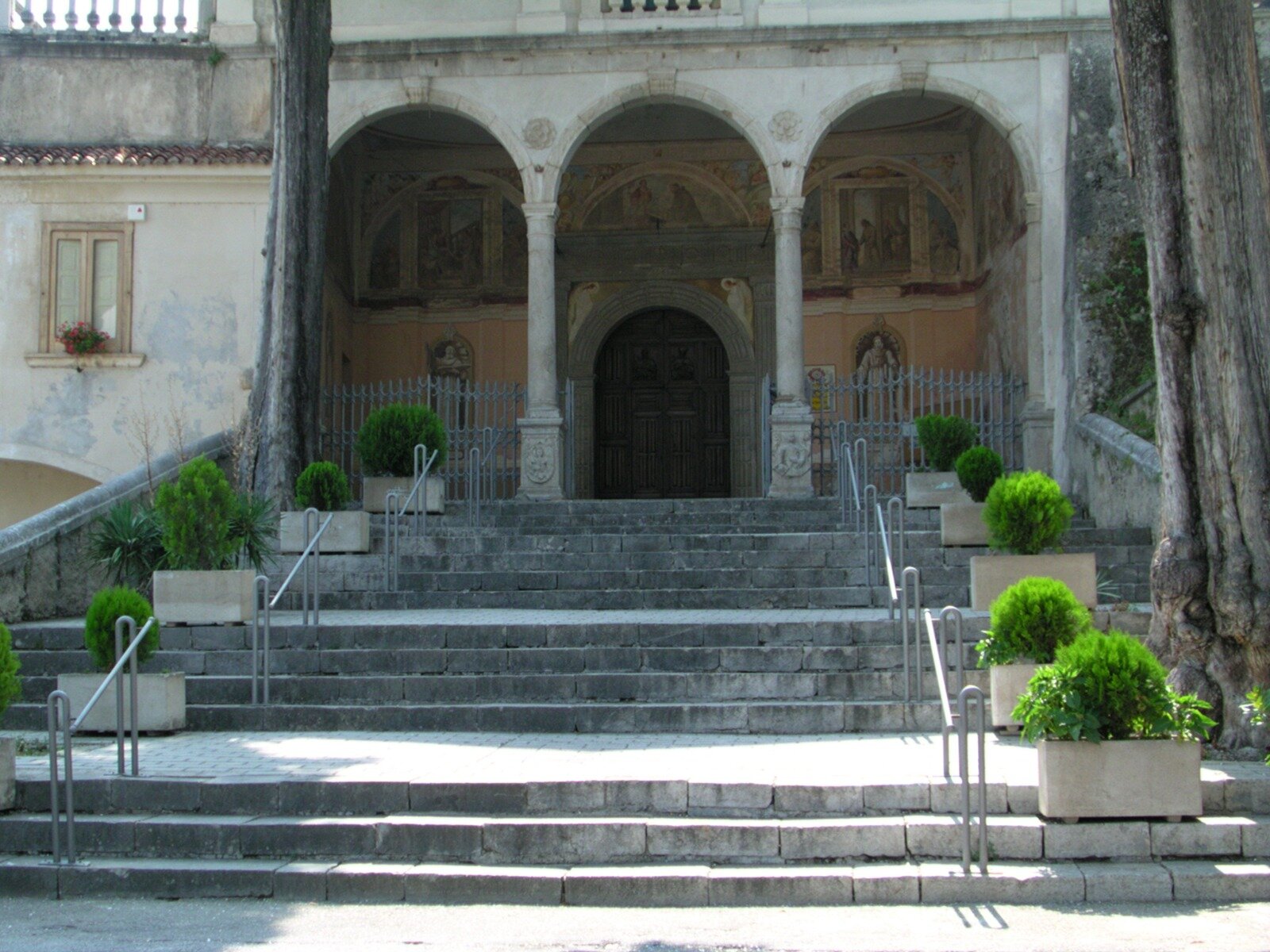MASSIMO SALVATO
Massimo, contemplating the dreaded MOT
Mass is a filmmaker and a teacher who lectures on film at a local college. He is also a mate of mine. He has very many friends, so I’m proud to call him a friend. He has two brothers, one, Giancarlo, with whom he used to play football as a boy, and another, Amedeo, who tinkles the ivories. He travelled to Brazil before he came to Wales. That journey at least made him aware that he needed to move from Italy. While we all dream of Naples and the Amalfi coast, he turned up here. Mad.
When he’s being interviewed about his projects and his conceptual work, he says things like this below:
“I feel the constant emergency ‒ and pleasure ‒ of destroying, displacing, subverting narratives, and in so doing, hopefully to give space to new voices who live “in-between” and have to find expression.”
People attempt to define him and his productions in a single word or term, which is impossible. You often hear people referring to a director’s style, which frankly is bizarre. Here is an example below of how Mass is being pigeon-holed (without any bad intentions).
“If we are to pick a word that would best describe the Italian born film-maker Massimo Salvato, then this word would be ‘Deterritorialization’.”
If I had to pick a word that would best describe Salvato, then it would be “biscuits.”
Mass would put the cookie monster to shame! When I’d complain about the empty biscuit tin, he would reply, “Tony took the custard creams!”
But, yeah, diaspora…..
Here’s another classic:
“With his critical approach to filmmaking and his propensity to transcend both territorial and cultural boundaries, Massimo creates pseudo or meta-narratives that depict marginalised and emerging communities in an attempt to strengthen their identity by translating their incongruity and displacement into a nomadic yet meaningful cinematic storytelling.”
Wow! How do you follow that?
Maybe a run-through of his work to date is in order. Let’s start at the beginning.
CARMEN
“The crew for Carmen, bouncing to the airport. On the right is James Wood, sound recordist and Welsh Police Criminologist and filmmaker. He is holding the film stock.”
Massimo’s first film Carmen, shot in Southern Italy, was a short. He produced and directed it. The film came about as a result of a collaboration of some very talented colleagues from the MA Film course at the University of South Wales. This institution had been the former Newport Film School. At Newport he gained the necessary confidence for his projects. Before he embarked on a filmmaking course he had trained in Italy to be an economist!
After completing his MA he collaborated with some of the EKRAN filmmakers from the Wajda Studio in Warsaw, which gave him the possibility to test himself against some of the best potential European filmmakers.
Mass explains, “I had the possibility to plan, shoot and edit short films with some remarkable filmmakers and artists, some of them collaborated with me in cast and crew roles or as advisers in all of my following projects. In general, film is a collaborative art, and, in each project I made, the people I collaborated with have meaningfully contributed to the final products.”
It’s never easy to elicit from a creative who their inspirations are or who is their greatest influence. However, Massimo confesses to be inspired by the worlds of Italo Calvino and the fictional journalism of Marquez, Sciascia and Rea. He loves the idealist tradition of the Neapolitan School of Philosophy of Benedetto Croce and Gerardo Marotta. Coleridge and Ian McEwan are his favourite British writers and he often reads Borges, Emily Dickinson and Majakovski. If pushed he may declare influence by the cinema of Bunuel, Truffaut, Kubrick and Tarkovsky.
However, with Carmen he ended up making a short film which recalls David Lynch, whose films he hadn’t seen at the time. Humorously, he quips, “Maybe I am influenced by what I don’t know.” This kind of enigmatic absurdity is what magnetises his friends. We often indulge ourselves feverishly in discussing the void. He’s a big fan of my Coincidence Diaries. I recall that this was the film, over which we bonded. He used to offer presentations about the making of his film and I usually made the most requests. That’s how we got to know each other. He’s also personally-responsible for my undertaking a Masters in Design. “Come and meet my friends in Caerleon,” he said. Fully-intending to tackle an audio or sound-based programme, I naturally was tempted by the daunting philosophy-driven art-installation course.
Cheers, Mass!
Carmen remains one of my favourite pieces of Massimo’s work. It’s a short, and, if you can make a short, you can make any kind of film. The acquisition of Cristina Donadio for the role of Carmen was also a real coup for the production, with her astonishing sensuality threatening to set fire to the celluloid! The settings are sensational, as is the cinematography. It looks great. The film has become a hot potato again for its themes of transgender.
Here’s the making of the film through Massimo’s words and Anita’s superb images:
An image following a ‘take’ in a street in Polla
“This is my mum cutting Carmen's costume in her workshop room. On the right, looking at some photos of Macsen when he was a baby, is Adriana, our next door neighbour and friend of my mum. She & her husband Prof Antonio Cancro helped me a lot when I needed to catch up with Italian, mathematics and English in school and I used to pop over to their house in the afternoon to do so. Adriana had a terrible stroke about 10 years ago. My mum goes to visit her sometimes. The family owned the only cinema in Polla, which was closed in the late 80s.”
“On the left in the above image, Salvatore Medici, a local journalist and friend of many battles, is shooting behind the scene with his camcorder and holds a reflector at the same time for the Welsh crew. He chats to Nando Tutino, a childhood friend of mine who introduced me to Gong. Local kids and people watch amused, and so Cristina Donadio. Her costume was designed by my mother, pictured in the photo (above right).”
Cristina has recently starred in one of the most popular crime-thrillers on Italian TV, a gruesome gangster production which has gripped the country. She plays a character called Scianel in ‘Gomorra - La serie.’
Check out this fascinating interview here:
Cristina Donadio & Alan Grice
“Kind of iconic picture above. In the background, my assistant director, Alan Grice, a big Liverpool fan from Liverpool, an MA classmate, now living in Pembrokeshire. Alan, actor, writer, producer, director and a former BBC assistant director on Casualty. He exchanged Liverpool and Napoli shirts with my dad.”
Cristina in the Villa garden
“Another iconic photo of Cristina Donadio in Carmen (above). Here we are in the garden of the villa in Polla old town, where we filmed the scenes in the kitchen and bathroom with Carmen and her mother (Rina Nardi, a cabaret singer from Salerno). The villa belonged to the family of don Luigi Stabile, Futurist architect, who signed Marinetti's Manifesto of Futurism in the early 20th century. Don Luigi was born in October 1900 and died a few months before our shoot at the age of 104. In the late 90s I assisted on a shoot of a short documentary about don Luigi, directed by my Polla friend, film writer, educator and critic Antonio Medici, now co-ordinator of the Scuola d’Arte Cinematografica Gian Maria Volonte in Rome.”
Nando, Mass, Mike Rymer & Nick Murray
“This is a better wrap photo. You can see sitting below, on the right with the Italy shirt, Alan Grice (Liverpool), and my dad touching his shoulder behind him.”
“Nando and I used to go on this hill overlooking Polla at night and listen to music in his car, mainly in winter nights where nobody was around. I discovered some jazz and definitely the psychedelic band Gong on this hill. That's where I learned to smoke, too. You can see here, from the left: Nando, myself, Mike Rymer (cinematographer and now lecturer in film at UCA London) and Nick Murray (camera assistant and now multi award-winning Welsh wedding photographer).”
“This is Rob Jenkins, the camera operator from Barry Island. The Welshiest of all, probably. He couldn't cope without bacon and egg at least once a day. We had to tell the hotel!”
“This is our bench, the one we sat every day, forever. Two years ago, when I went to see my parents, I was going to the bench for my after lunch cigarette and probably a little siesta, but my mum said that the bench wasn't there anymore. ‘Did you forget?' she said. I did forget, I was in denial. They had dismantled everything and built a new square, and I had completely removed it. I still miss my bench and I want make a film about it.”
There could be a sequel to this film, called, enigmatically, “The Bench.”
“On the left, our still photographer, Anita Hummel, German, Bristol based. All of the photos are by Anita Hummel.”
Claudia Landolfi.
“This is me with Claudia Landolfi. Claudia and I shared some theatre experience, acting together in plays by director Franco Alfano. She is a philosopher, dancer, writer and she was also a politician for a while, in Salerno. Claudia helped me with the casting of Carmen supporting actors while I was in Wales. She also played an extra in Carmen.”
Elsewhere on this page you will find more images of Massimo’s home town, Polla, and its people. The experience of making Carmen left a deep impression on him and he felt he needed to explore more of Polla’s impact on his current life.
Here are some references to Massimo’s reframing of his work on Carmen, in terms of the debate on transgender.
https://vimeo.com/421047469 - Carmen trailer
https://vimeo.com/419991352 - Carmen
“This is a photo of the wrap party in the Hotel Forum in Polla where some of the cast and welsh crew stayed for a week in the summer of 2004, thanks to the generosity of Polla Council. The man on the left is Rocco Giuliano, mayor of Polla, who died only a few weeks ago, and the woman is Tiziana Medici, a key member of Rocco's team, city councillor and friend of many battles, sister of Salvatore from the first photo. Check out her Motorola mobile phone!”
“Another wrap photo with myself and little Luigi, who plays Carmen as a little boy, and who is now 24 years old. He is the son of my friend Enzo D'Arco, a local theatre writer, director and performer of a genre which mixes traditional folk stories with physical theatre and improvisation. Every summer he organises a play with an audience on the top of a mountain which is inaccessible by transport, except by walking. So, the audience walk to the top and find the actors there. A bit like organising a play on the top of Pen y Fan.”
MUSE
Inside the pasta vaults of Mass’ kitchen
His next work, also a short film, explored a variety of themes and made a determined effort to tackle head-on his desire to explore narrative in more depth. This is what he said at the time.
” I do love narrative cinema, which is the cinema I watch and enjoy most of the time, which it makes me feel like there is a ‘home’. However, my work (documentary and fiction) is part of a tradition of “cinema of diaspora”. As a southern Italian who relocated in Wales, a cosmopolitan country, I exist in a state of tension and dissension with both my Italian and Welsh ‘homes’, the so-called ‘diaspora anxiety’. Narratives are seducing and poisonous like drugs or the ‘femme fatale’ of noir films, or Ludmilla in Muse.”
Food plays an important role in Italian culture. You’re likely to spot Mass & me in The Pot near Newport market, as we tuck into a full English. The owner of The Pot loves Bowie and her establishment is bedecked with posters and album covers. She hasn’t twigged she’s dealing with one of the biggest experts of Bowie tunes on the planet. Haha!
Or, if you’re out shopping, we’ll be in Morrison’s cafe, with Mass enjoying his favourite ‘eggs benedict.’ Ye Olde Murenger House still does a neat lunchtime meal, too. Apparently, “mur” is the old French for “wall.” The term “murage” meant a wall-tax, for the defences of Newport, and the Murenger pub used to be where they collected these taxes. It is very olde.
One day Mass came running up to me and excitedly exclaimed, “I’ve found a tank!”
Bemused by this I answered, “What?!!”
”Yes. I have a tank for my film.”
”Let’s get this right. You’re making a contemporary film about a sleepy Welsh village and you’re putting a fucking tank in it?”
”Yes.” He seemed hurt by my astonishment. Tank, it is then. And that is how the narrative fits in with his moments of serendipity or otherwise. Awesome!
Massimo has some fascinating views on what he terms ‘narrative subversion’ in his films. In a recent interview he suggested, “I feel the constant emergency ‒ and pleasure ‒ of destroying, displacing, subverting narratives, and in so doing, hopefully to give space to new voices who live ‘in-between’ and have to find expression. My films are created working independently, outside the mainstream film industries; they use interstitial and collective modes of production that critique those mainstream film industries. Within this context, I don’t know where I am situated, but maybe I will be able to answer when I will have made a few more films.” He certainly set about subverting the narrative here; its relatively-simple premise of two men vying for the attention of one woman is interspersed with odd time-frames and potentially a ghost story. Cracking stuff.
[If you want to read reviews of some of these films and a music video, see “Film Reviews” under my blogs.]
https://vimeo.com/9555856 - Muse
“JOHNNY” - THE SHAMAN OF RUST
This is how we referred to Massimo’s excellent political attack on corporate social disinterest. The film is actually called ‘The Shaman of Rust.’ Mass really came into his own with this. He allowed a documentary on mental health to drift and take on various other lives. It eventually became a metaphor for our contemporary poisonous culture, or lack of it. It attacked random corporate development which bedevils many UK cities, robbing them of the vitality and dynamism they need to survive and flourish. It’s a long production for Massimo, with an excellent soundtrack and superb cinematography again. It’s a savage indictment of austerity and disinterest in humanity, that is, people.
In Pill, near the docks, there’s another fascinating cafe, where we’d have breakfast, usually if our cars had to get a MOT in Spytty. It’s got the delightful name of Fanny’s! It is near the docks, after all. Fanny’s Rest Stop Cafe. You can order what you want. All fresh ingredients and outstanding value. It’s also full of interesting decor from the world of film and popular culture. Opposite is a pub, infamous for its reputation for entertaining sailors, which is now very popular for Sunday lunches!
Mass lived near Naples when he was growing up. That’s Napoli. They have a football team there and, unsurprisingly, he is a huge supporter. While we would be subject to chains, belts and beatings if we attempted to watch, Mass can swan into the ground and enjoy the spectacle undeterred. His idol was Diego (that’s Maradona to the rest of us). Whenever Napoli are on TV on a Sunday afternoon or evening, Mass & I sometimes text each other about the games. Football remains his passion and we spend the whole match exchanging views on WhatsApp. The terrifying thing is he keeps threatening to take me to watch them! I remember the story of Quagliarella and squirm.
https://www.youtube.com/watch?v=OnZXsQzSj4g&feature=youtu.be - The Shaman of Rust
The short 'Michael Flynn at work'.
A short documentary montage commissioned by Cardiff based, Irish sculptor Michael Flynn. The film was made to accompany Flynn's exhibition at the Korean International Ceramic Biennale. Filmed at his home/workshop, the film shows Flynn's basic figure making process, from referring to books, to drawing, to clay modelling, to glazing and assembling the fired elements of the sculpture, to photographing the final product. Keefa Chan filmed it on the RED.
It was interesting to spend time with Michael, who is a connoisseur of coffee. He seems to buy this everywhere when he travels the world for exhibitions and masterclasses. The conversations about his visual influences took us to Kafka's drawings, Alban Berg's expressionistic music, Kurt Weill, and all this therefore was translated into the film's choice of music.
https://vimeo.com/347358055 - Michael Flynn at Work
COVID 19 - MILAN & LOMBARDY (PANDEMIC SHORTS)
Milan took a hit. Mass wanted to document the horror and his own frustrations at how everything was unfolding. He made some short edits when he felt he was able. Here they are:
Links to 'lockdown doodles' - The Thin Red Thread, a series inspired by a friend living in Milan during the pandemic:
1. https://vimeo.com/402926291
2. https://vimeo.com/403377329
3. https://vimeo.com/406051541
4. https://vimeo.com/408073251
5. https://vimeo.com/418090978
A SENSE OF SPACE
Massimo made a documentary about his home town, a personal evocation of his experiences.
Here are his anecdotes alongside images.
“This is a section of Vallo di Diano, the valley situated between the Alburni mountains and the border between Campania and Basilicata, in the province of Salerno. Once it was a lake and, since 1998 it is a UNESCO World Heritage Site and part of the Cilento and Vallo di Diano National Park. Vallo di Diano is composed of 17 municipalities. This is the view of the little town just after Polla, called Sant'Arsenio. That is where you could have gone to eat an ice cream in the evening and also see some movida.”
“This view is from the balcony of my parents' house, looking at Polla's old town. Basically the part of Polla behind the camera was built from the 1960s, while the part we see is much older.”
“Polla’s market: chillies and tomatoes.”
“Polla's market: melons.”
“Peaches. My dad put them in chilled red wine in the summer. My first experience of wine ever was to eat the peach inside the wine.”
“Polla’s market: garlic.”
Church in Polla: Chiesa del Santi Pietro Apostolo e Benedetto
“The Convent of S.Antonio, the most important monument in Polla, rebuilt multiple times over the centuries and tracing from the 10th century. It is a Franciscan convent.”
“Bales everywhere. You can see here the Alburni mountain Apennine chain in the background. They are some of the highest mountains in southern Italy.”
Everyday life in Polla
“The convent’s porch shows a Renaissance portico with three round arches and a staircase in front.”
“The view of Polla from the convent. The building on the far left below is where my parents live. The horizontal line of trees hides the Tanagro river, which cuts Polla in two.”
“All this is gone. Demolished, and a new square built. Those graffiti were history too.”
“Polla's hospital, which they are trying and trying to get rid of, those Berlusconites, Trumpites, Cummingsists and Salvinists... But they saved lives during covid. They are good there, always been good.”
“My dad with Alan's shirt. My dad still has it.” Alan made me aware of the Film Studies job at the college where I now work.”
“Alan is here singing ‘You'll Never Walk Alone’ and my dad with Michele Lambiase (actor and comedian, now owner of a fine restaurant in Salerno's province).”
“Some information you may like too: when we returned to Wales after the shoot, Alan (in the photo with the blue shirt) directed a short about autism, filmed in Llantwit Major, and I worked as an Assistant Director for him and I also had a role as an extra in a scene set in Cwmbran Leisure Centre swimming pool. In this photo you can see his two stars: Michelle, Alan's daughter on the left, and the recently-departed Liverpool actor Michael Angelis. And that is the info you may like to know. I worked with Thomas the Tank Engine’s voice! Very nice man and excellent actor.”
“Alan came with a collection of Italian shirts. He reminds me now of someone I know...”
“My mum and dad on their balcony looking at us sitting on the bench.”
Finally, you may like to discover what kind of films Massimo himself admires……..or not! The link below takes you to his personal reviews.
The glamorous lifestyle of a film crew!




































